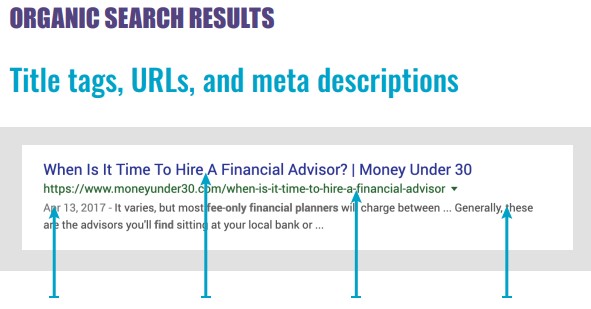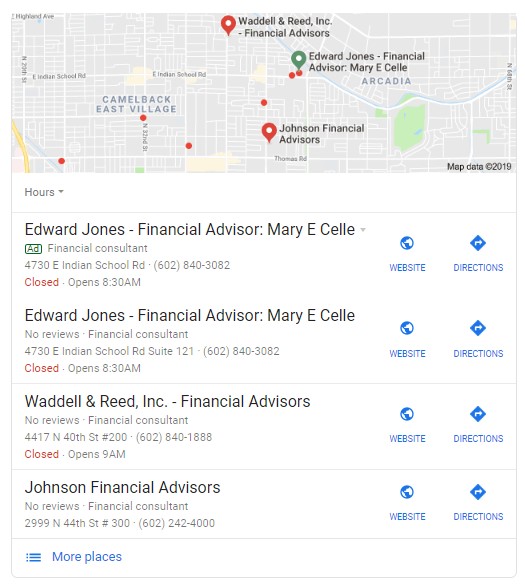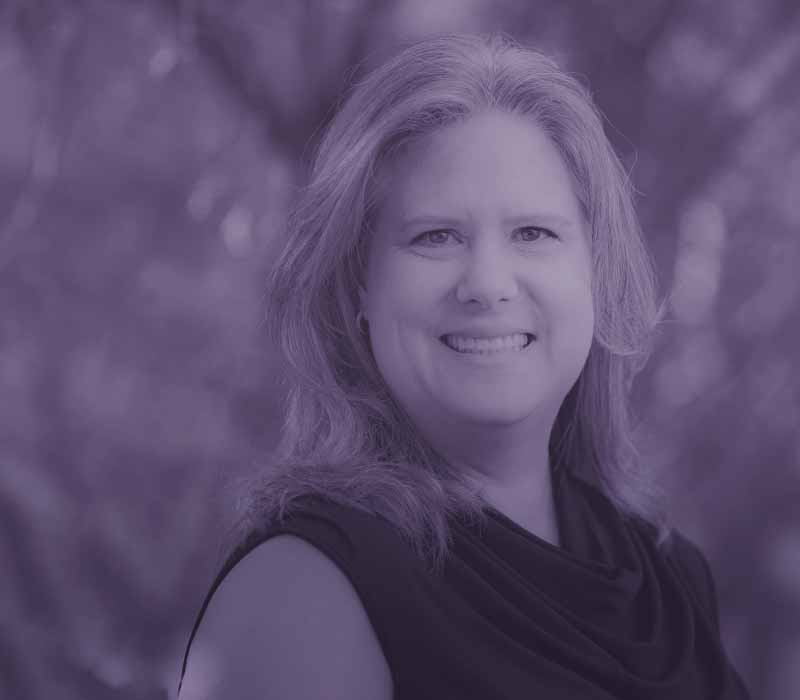- You should understand basic SEO concepts and terminology.
- SEO means Search Engine Optimization. SEO focuses on ways to get the highest possible rankings in organic search results. It is different than paid ads, PPC (Pay Per Click) or Google Adwords. SEO is considered a more permanent endeavor, and takes longer.
- SEO starts with determining which keywords you should focus on. You should always think of keywords in terms of what a potential client would type into search order to find your firm or services. If you could somehow rank number one in search for “tennis balls,” would that help you? No, it wouldn’t. People searching for tennis balls are not interested in what you have to offer and won’t click on your link. You have to consider the intent of the searcher when choosing keywords.

- Each page—each separate URL—on your website is “read,” indexed, and ranked separately by search engine robots / algorithms / artificial intelligence. If you have a one-page website, you will probably rank for only one or two keywords at most. Adding more pages—including blog posts—is the way to add more keywords to your website, and rank higher for multiple keyword terms and phrases, including your own name, i.e. John Doe.
 The components of a search result include title tags, URLs and meta descriptions. These can be specified in the back end of your website, or if they aren’t, Google and other search engines will automatically decide them for you.
The components of a search result include title tags, URLs and meta descriptions. These can be specified in the back end of your website, or if they aren’t, Google and other search engines will automatically decide them for you.
In the example here, title tags are the blue words in search (which turn purple once you click on them); SEO experts agree that they are the most important thing you can focus on in order to rank. Under the title tag is the URL, or the actual link. Underneath the URL is the meta description, limited to 155-160 characters. Consumers use the meta description to decide whether they should click or not. They should be crafted carefully, not left to chance.
- Know that keywords in the financial industry are extremely competitive.
Financial advisor is the most highly searched keyword in the industry when it comes to the intent of the searcher to find someone like you. And big firms spend a lot of time and money on both SEO and Google Adwords for that keyword. For instance, the first search results shown here for “financial advisor” are all paid ads.
 It will be difficult to rank organically for the keyword “financial advisor,” but that doesn’t mean you shouldn’t try. Try adding local terms to it for a longtail keyword phrase like “financial advisor in Seattle.”
It will be difficult to rank organically for the keyword “financial advisor,” but that doesn’t mean you shouldn’t try. Try adding local terms to it for a longtail keyword phrase like “financial advisor in Seattle.”
- You should focus on local SEO for each office.
Google local business listing is free, and it’s now part of Google maps. The search results delivered are based on the searcher’s location—either their actual IP or the physical address or location of the device used for the search.
 There are many other opportunities for free listings—like BBB (Better Business Bureau) and Yelp—and paid local listings for merchant association memberships. All offer the opportunity to link back to your website, which is what you want for SEO. NOTE: On sites that offer reviews, consumers can create a listing for you and review you whether you have created your own listing or not. By creating the listing, you can monitor and reply to what’s being said about your firm. Check with your compliance provider about this.
There are many other opportunities for free listings—like BBB (Better Business Bureau) and Yelp—and paid local listings for merchant association memberships. All offer the opportunity to link back to your website, which is what you want for SEO. NOTE: On sites that offer reviews, consumers can create a listing for you and review you whether you have created your own listing or not. By creating the listing, you can monitor and reply to what’s being said about your firm. Check with your compliance provider about this.
- Understand that social media is extremely important for branded SEO.
Business pages are different than personal pages on social media sites. Your potential clients will search for you before they decide to work with you, either before or after your first meeting. They will observe the results and decide if you are legitimate or not. With a Facebook business page, LinkedIn company page, YouTube channel, and other social media sites, you can show up multiple times on the first page of search results when they search for your business name.
In other words, business pages on social media sites all offer the opportunity to link back to your website as well as dominate the first page of branded search. And remember, you should continue to post regularly on those social media sites. A potential client will not be impressed if your last Facebook page post was from 2015. We can help with that. NOTE: Stay in control of your name and social properties—do not allow “orphan” social media sites to confuse your potential clients.
- No one knows precise ranking factors, but we know a lot.
How Google decides to rank content is their trade secret, and furthermore, it changes all the time. But SEO experts do their research to try to keep up on the latest algorithms and ranking factors. What we do know is that website structure, title tags, onsite and offsite links, social media activity, and continually updated, relevant content is critical to domain authority.
Think of it from Google’s point of view. They want to deliver searchers the information they want, and they it to be accurate and relevant. So, as a financial advisor, if you provide accurate and relevant content and information and publish it regularly on your website, Google will most likely reward you over another financial advisor who just can’t be bothered or doesn’t believe their potential clients are online. NOTE: The average length of a blog post that Google rewards with high visibility is 1000+ words.
Now that you know the basics about SEO, you should understand that there is no need to spend thousands and thousands of dollars on website content, design, development and SEO assistance when Quantum provides these complimentary services to our select financial advisor partners.
Call us at 800.440.1088 and let’s talk about your digital presence.
With a degree in journalism and many years of experience, Pel creates content for websites, blog posts, social media, whitepapers, marketing pieces and more. She is passionate about SEO.





















